When a drunk driver causes an accident, the consequences can be devastating. In mere moments, lives can forever change, leaving victims and their families struggling to cope with the physical, emotional, and financial aftermath.
At Nicolet Law Accident & Injury Lawyers, we understand the profound impact a drunk driving accident can have on your life. Our experienced Eau Claire drunk driving accident attorneys provide compassionate support and aggressive legal representation to help you navigate this challenging time.
The road to recovery after a drunk driving accident can be long and difficult, but you don't have to face it alone. Our team is here to listen to your story, answer your questions, and guide you through the legal process.
We believe that every victim deserves justice and fair compensation for their losses, and we are committed to holding drunk drivers accountable for the harm they cause.
Injured in Eau Claire? Get Nicolet.
Why Choose Nicolet Law Accident & Injury Lawyers?
Nicolet Law Accident & Injury Lawyers is a personal injury law firm with offices in Eau Claire, Wisconsin, as well as other cities and towns throughout the Upper Midwest and across the nation.
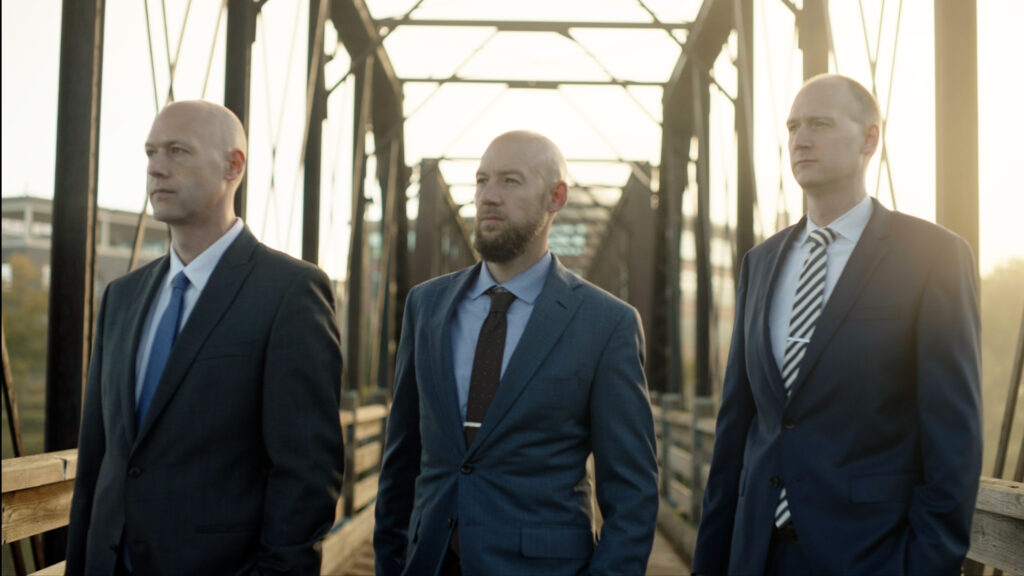
Our attorneys focus on representing individuals and families who have been impacted by serious motor vehicle accidents, trucking accidents, motorcycle accidents, pedestrian and bicycle accidents, wrongful death, defective products, dog bites, slip and fall accidents, and other personal injury matters.
With over 100 years of collective experience and a passion for obtaining justice, our team is committed to providing compassionate, knowledgeable guidance and powerful advocacy for accident victims during their time of need. Our Eau Claire car accident lawyers offer free consultations and contingency fee representation, meaning you pay no legal fees unless we recover for you.
Drunk Driving in Eau Claire, Wisconsin, and the U.S.
Drunk driving is one of the biggest menaces on the road in Eau Claire, the rest of Wisconsin, and the nation.
In Wisconsin, operating while intoxicated (OWI) is the term used for drunk driving offenses, which includes both driving under the influence (DUI) and driving with a blood alcohol concentration (BAC) of 0.08% or higher.
Eau Claire, Wisconsin
According to the Wisconsin Department of Transportation, there were 28 alcohol-related crashes in Eau Claire County in its most recent reporting year, resulting in 15 injuries and one fatality.
Eau Claire County reported 45 alcohol-related crashes, leading to 24 injuries and 2 fatalities. During a four-year span, Eau Claire County averaged 38 alcohol-related crashes per year.
State of Wisconsin

In the most recent annual report, there were 6,050 alcohol-related crashes in Wisconsin, resulting in 2,918 injuries and 167 fatalities. Alcohol-related crashes accounted for 5.3% of all crashes in Wisconsin during the reporting year, but they caused 28.6% of all traffic fatalities.
Alcohol was a contributing factor in 140 fatal crashes (25.7% of all fatal crashes) and 2,872 injury crashes (5.6% of all injury crashes) in Wisconsin.
United States
According to the National Highway Traffic Safety Administration (NHTSA), 28 people die in drunk driving accidents every day in the United States, which equates to one death every 52 minutes.
In one recent reporting year, 10,142 people were killed in drunk driving crashes, accounting for 28% of all traffic-related deaths in the U.S.
Drunk driving crashes cost the United States approximately $44 billion per year in economic losses, such as medical expenses, lost productivity, and property damage. More than 230 children died in drunk driving accidents in the reporting year, and over half of these children (54%) were passengers in the vehicle with the impaired driver.
These statistics underscore the ongoing problem of drunk driving and its devastating impact on individuals, families, and communities in Eau Claire, Wisconsin, and across the country. Tragically, Wisconsin’s figures are above the national average.
What Type of Injuries Can a Drunk Driving Crash Cause?
When people drink, they become impaired in visual function, motor skills, and judgment. These changes can occur after only one drink, according to the National Safety Council.
A drunk person can’t assess how to react to traffic situations or react in time. They may engage in dangerous behavior behind the wheel, such as speeding, running stop signs and lights, racing, behaving aggressively toward other motorists, and more.
As a result, drunk drivers behind the wheel can cause almost every type of injury the human body can sustain, including:
- Cuts
- Bruises
- Soft tissue injuries (such as whiplash)
- Sprain
- Broken bones
- Traumatic brain injuries (TBI)
- Spinal cord injuries
- Internal injuries
- Burns
- Hearing loss
- Disfigurement and scarring
- Loss of an organ, such as an eye
- Loss of bodily functions, such as the ability to walk
- Coma
- Death

Some of these injuries, such as bruises or small cuts, are relatively easy to treat medically and generally resolve with no lasting harm to the victim. Others, such as TBIs and spinal cord injuries, can be catastrophic and irreversible.
Catastrophic means that an injury exerts an immediate and usually lasting negative effect on the victim’s life. TBIs can result in brain damage and memory loss.
Spinal cord injuries can result in paralysis. These and other types of catastrophic injuries can keep the victim from working or enjoying activities like sports that they once loved.
Drunk driving accidents, no matter what injuries they cause, should not occur. They are preventable. Unfortunately, despite decades of education, attempted deterrence, and strict penalties for an OWI conviction, individuals impaired by alcohol continue to get behind the wheel.
Receiving Compensation for an Eau Claire Drunk Driving Accident
Wisconsin is a fault state for all vehicle accidents, including those involving alcohol impairment. This means that the state’s laws hold the at-fault driver responsible for injuries and property damage resulting from the accident they caused.
It differs from the no-fault system in some neighboring states, where victims must turn first to their own insurance for compensation. In Wisconsin, you do not need to do that.
You have two methods to seek compensation for injuries: You can turn to the at-fault party’s insurance company before filing a lawsuit, or you can file a drunk driving accident lawsuit against the at-fault party in civil court.
These two methods aren’t mutually exclusive. Sometimes, insurance companies refuse to compensate victims fairly. If they do, an Eau Claire drunk driving accident lawsuit can persuade them to settle fairly.
Insurance companies don’t like to go to court, because judges and juries often show more sympathy to victims than insurance companies. But victims can also go to court without approaching the insurance company for a settlement first.
Damage Compensation

Regardless of the method a victim chooses, damage compensation is the desired result. Damage compensation is the term insurance companies and courts often use to refer to financial compensation for injuries and harm caused by another party.
Victims can seek damage compensation for:
- Medical bills for emergency transport, emergency room treatment, surgery, hospitalization, doctor’s visits, prescription medication, assistive devices, diagnostic tests, retrofitting living spaces to accommodate a new disability, and more.
- Wages lost from work due to the accident itself, treatment, or impairment due to the injuries.
- Property damage for personal property damaged or lost in the accident, such as a car.
- Pain and suffering for mental, emotional, and physical pain and suffering from the accident.
What if I Need Additional Medical Treatment in the Future?
After a serious accident, a victim may not only need compensation for short-term treatment of the injuries they incurred but also for ongoing treatment their doctors expect them to need in the future.
Multiple surgeries, physical therapy, and intensive nursing care are just three types of medical care that patients may need for a long time. There are many others.
Assessing how much damage compensation to request for future care is not as straightforward as it is if bills are already incurred. If your doctors expect you to need additional medical treatment in the future, a prediction of what treatments will be necessary and an estimate of the likely cost is needed. You can then seek damage compensation based on that estimate.
Your Eau Claire car accident attorney may retain a medical expert to provide a second opinion about future care, to back up your doctor’s predictions.
Insurance for Drunk Driving Accidents in Wisconsin
Wisconsin requires all drivers to have liability insurance (the type of insurance that pays for injuries and harm caused by the insured).
The minimum amounts are:
- $10,000 for property damage;
- $25,000 for the injury or death of one person; and
- $50,000 for the injury or death of more than one person.
Law enforcement may request proof of insurance at the scene of an accident.
Wisconsin also requires uninsured motorist coverage, with a minimum liability of $25,000 per person and $50,000 for each accident. This mandate can cover you and your family if the at-fault driver doesn’t have insurance or if you’re a hit-and-run victim and cannot identify that driver later.
How Long Do I Have to Bring an Eau Claire Drunk Driving Injury Claim?
You must bring your Eau Claire drunk driving accident case by a specific deadline, established by the statute of limitations. In Wisconsin, the statute of limitations gives you three years from the accident to file a lawsuit.
If you are injured by a drunk driver, your interests are highly likely to be best served by talking to a lawyer as soon as possible. While real-life legal cases are not generally like the ones you see on television, they are in one respect: Without evidence, justice is hard to come by.
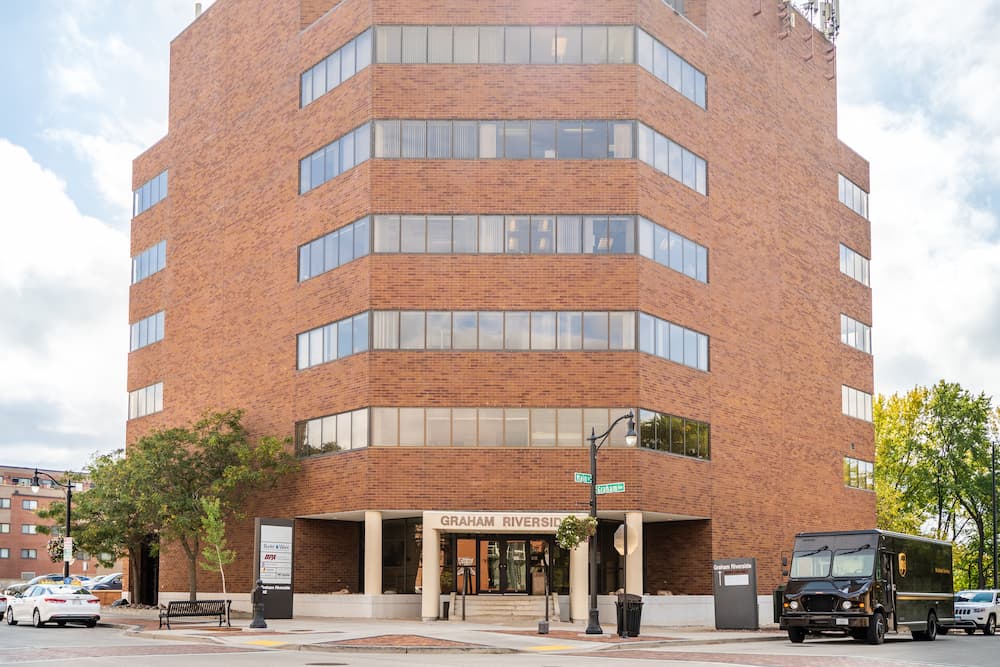
Without evidence, who or what caused the accident is subject to dispute. So are the nature and extent of your injuries. Negligent drivers aren’t usually above claiming that they aren’t at fault. They may entirely fabricate a story about how the accident happened, and without evidence, there is no proof that they’re wrong.
Insurance companies also have a vested interest in finding that someone other than their insured is at fault, because it hurts their profits when they have to pay out claims.
Evidence can also become lost. For example, eyewitnesses and surveillance footage can constitute excellent evidence, but eyewitnesses forget or sometimes move away. Surveillance footage is often erased after a certain time.
Timing in approaching the insurance companies is also important. While insurance claims have no specific statute of limitations, you need to file a claim in a reasonable time after the accident. An insurance claim should follow the accident quickly—within a week at most.
Allow your lawyer to contact your insurance carrier and the at-fault party’s insurance carrier immediately after the accident, or as soon as doctors sufficiently treat your injuries.
A delay could cause the at-fault party’s insurance carrier to raise questions about why you waited. They can try to use this to question the extent and nature of your injuries, to pay you less than you deserve.
In addition, of course, the sooner you begin the process of claims and damage compensation, the sooner you will receive compensation.
What if I Don’t Know Who’s at Fault?
Victims aren’t always in a position to know who’s at fault. You may have been knocked unconscious or thrown from the vehicle, or perhaps you simply didn’t see what happened.
You may not remember the precipitating events in the aftermath of an accident. Even if you have an idea of who or what caused the accident, the at-fault party may dispute it.
Also, what seems like someone’s fault may stem from another cause. A driver may appear to have run a stoplight, for example. But sometimes, mechanical failure causes brakes not to work. If malfunctioning brakes cause the crash, you can hold the car’s manufacturer or a repair shop at fault, rather than the driver.
Skilled investigators can analyze the accident scene, talk to law enforcement, pull surveillance footage, find eyewitnesses, and even re-create the accident scene using forensic analysis. An attorney can work with an investigative team to determine who is at fault for the accident.
The issue of fault is extremely important in drunk driving claims. The party that caused the accident is the only one liable (financially responsible) for injuries and other harm the accident caused. Other people can be involved in the accident, but involvement does not mean liability. Only causation does.
How Much Does Hiring an Eau Claire Drunk Driving Accident Lawyer Cost?
It’s not uncommon for injured folks to worry about how much a lawyer will cost to get them compensated after an injury from a drunk driver. After all, mounting medical bills and wages lost from work due to the accident may make you anxious.
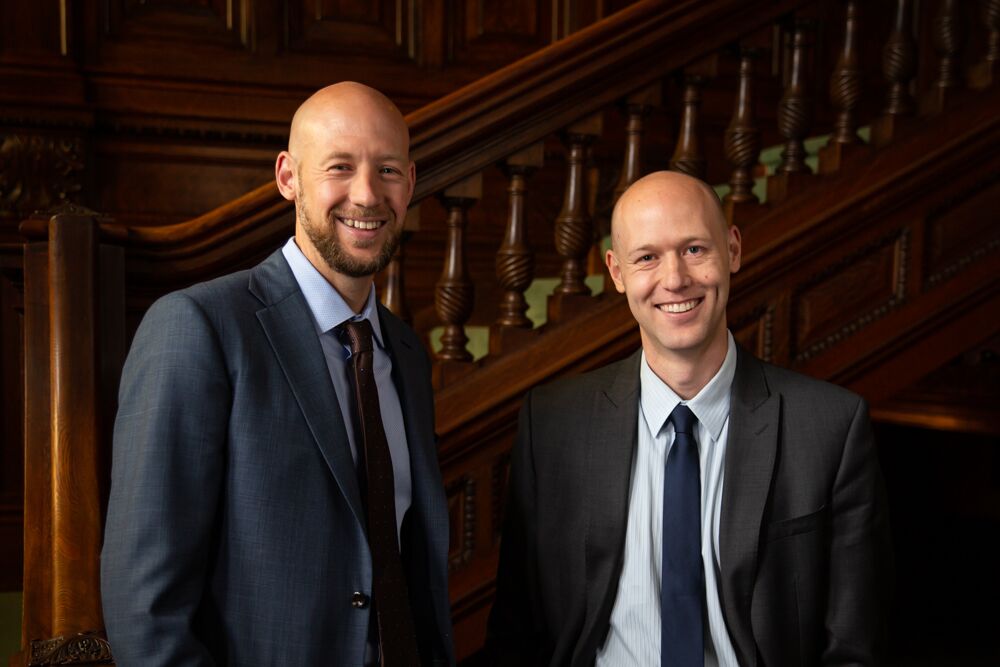
Hiring a lawyer usually doesn’t cost you anything out of pocket. Car accident lawyers almost always offer a free initial consultation to discuss the accident.
During the consultation, you’ll explain what happened, who you think the at-fault party is, how they injured you, and what impact the injuries and harm have had on your life. We will then let you know whether we believe you have a case against the other party.
If you have a drunk driving injury case and decide to hire us, you won’t have to pay out of pocket for our services. If you win a court case or receive a payout for your insurance claim, the lawyer receives a percentage as a contingency fee. If you don’t receive damages in court or an insurance claim payout, you generally owe nothing.
Wisconsin Drunk Driving Laws and Penalties
Wisconsin takes drunk driving offenses seriously, with strict laws and penalties in place to deter individuals from getting behind the wheel while under the influence of alcohol.
First Offense OWI
A first-time OWI offense in Wisconsin is generally treated as a civil violation rather than a criminal offense, unless there are aggravating factors such as a minor in the vehicle or a particularly high BAC.
Penalties for a first offense may include:
- Fines ranging from $150 to $300
- Driver's license revocation for six to nine months
- Mandatory alcohol assessment and compliance with treatment recommendations
- Installation of an ignition interlock device (IID) for BAC levels of 0.15% or higher
Second and Subsequent OWI Offenses
Second and subsequent OWI offenses are treated as criminal charges in Wisconsin, with increasingly severe penalties based on the number of prior convictions and other aggravating factors. Consequences may include:
- Fines ranging from $350 to $10,000 or more
- Jail or prison sentences ranging from five days to 15 years or more
- Driver's license revocation for 12 to 36 months or longer
- Mandatory installation of an ignition interlock device
- Felony charges for fourth and subsequent offenses
Implied Consent Law
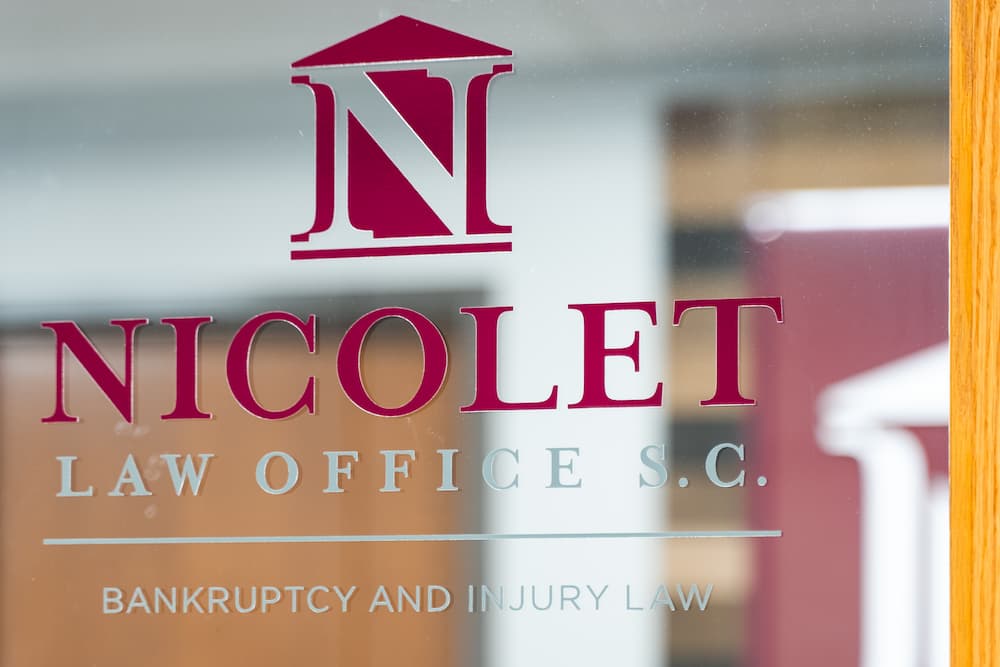
Wisconsin has an implied consent law, which means that by operating a vehicle on Wisconsin roads, drivers are deemed to have consented to chemical tests (breath, blood, or urine) if suspected of drunk driving.
Refusing to submit to a chemical test can result in additional penalties, including driver's license revocation and the use of the refusal as evidence against the driver in court.
Dram Shop Liability
In some cases, you can hold bars, restaurants, or other establishments that serve alcohol to a visibly intoxicated person liable for damages caused by that individual's drunk driving. This is known as dram shop liability.
Wisconsin does not have a dram shop law that allows victims of drunk driving accidents to seek compensation from the establishment that overserved the intoxicated driver, subject to certain conditions and limitations. The exception to this is if the establishment was serving someone underage.
OWI Involving Injury or Death
If a drunk driving accident injures or kills another person, the intoxicated driver may face significantly more severe criminal charges and penalties. These may include substantial fines, lengthy prison sentences, and permanent driver's license revocation.
An experienced Eau Claire drunk driving accident attorney can help victims navigate the legal system, protect their rights, and pursue the compensation they deserve.
Contact an Eau Claire Drunk Driving Accident Lawyer
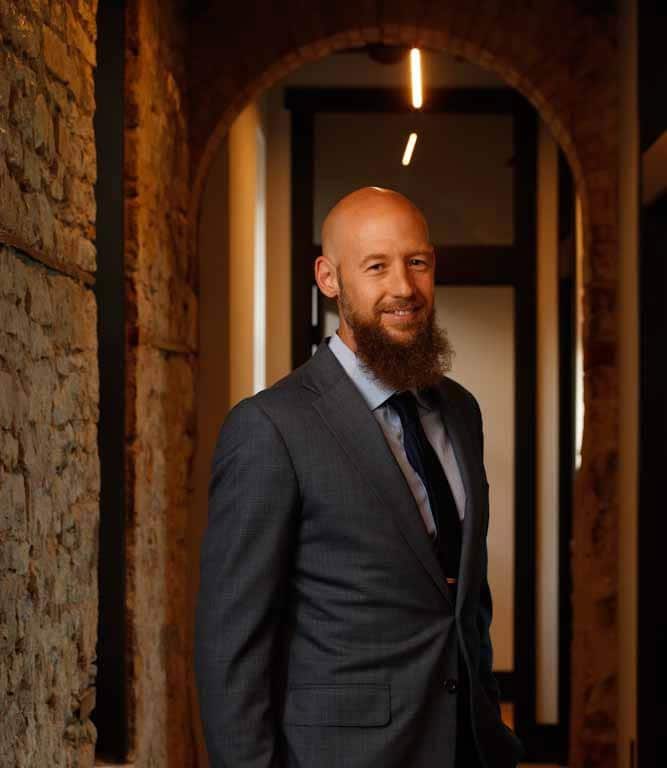
Choosing the right personal injury lawyer can make a significant difference in the outcome of your drunk driving accident case. At Nicolet Law Accident & Injury Lawyers, our attorneys have extensive experience handling cases involving drunk drivers.
We understand the unique challenges these cases present and know how to build strong, compelling claims on behalf of our clients.
From gathering evidence and negotiating with insurance companies to litigating in court when necessary, we have the knowledge, skills, and resources to fight for the maximum compensation you deserve. Let us be your voice and your advocate during this trying time, so you can focus on healing and moving forward with your life.
If you or a family member suffered injuries or other harm at the hands of a drunk driver, we can help. Nicolet Law Accident & Injury Lawyers will fight to see that justice is done. Our first consultation is always free and we work on a contingency fee basis. Contact us today. Call our Eau Claire office at (715) 835-5959 or contact us online at any time.